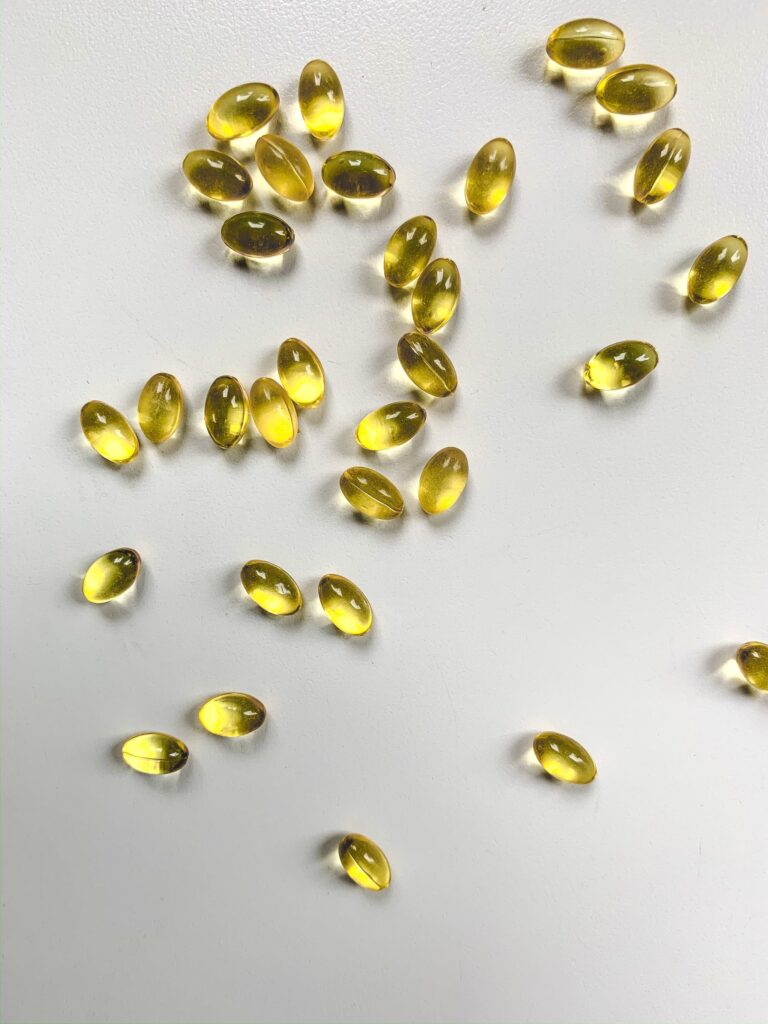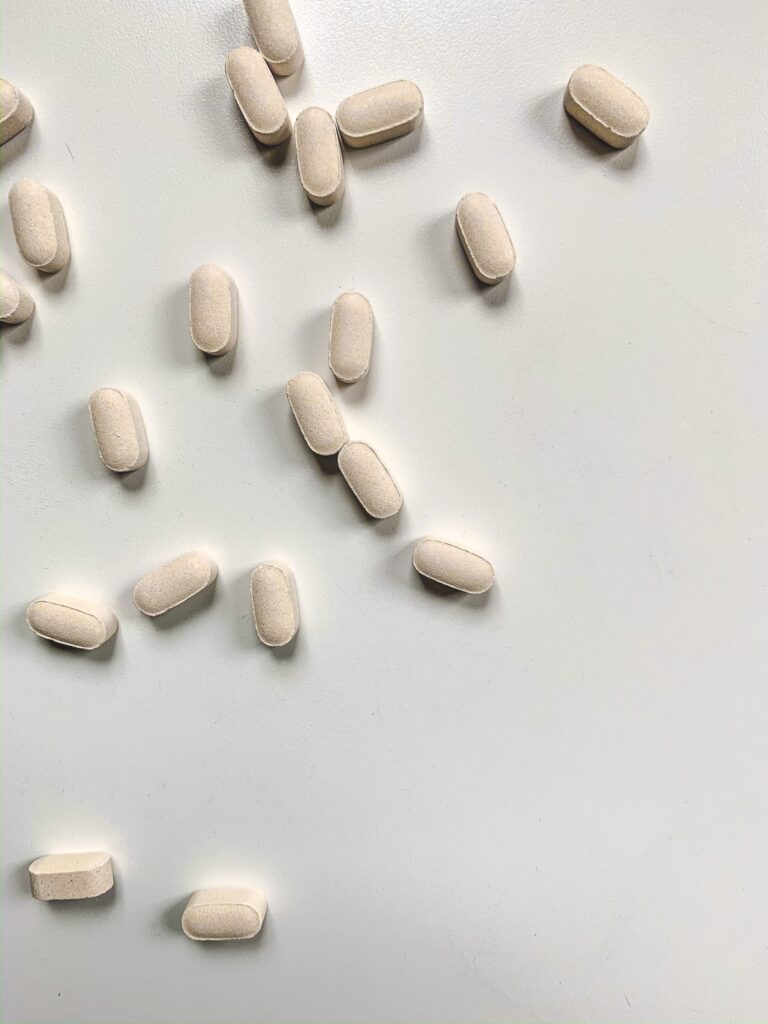Dietary Supplements 101 – What to Know Before Buying Supplements
At least half of all Americans are taking a supplement. (1) Are you one of them? I know I am. As a culture, we’re more health-curious than ever, so it makes sense that many people are supplement-curious. I’m breaking down what to know before buying supplements and answering some of your most common questions.
Do you need a supplement?
Do supplements work?
Can you overdo it with supplements?
How are supplements regulated?
Where should you go for information on supplements?
Have you ever found yourself wondering one (or more) of those things? If so, read on, my friend.
Types of Supplements
First of all, let’s define what a supplement actually is. Dietary supplements can fall into a variety of different categories, including (but not limited to):
- vitamins (ex: multivitamins, vitamin C, B-complex vitamins)
- minerals (ex: zinc, iron, calcium)
- botanicals/herbal supplements (ex: milk thistle, turmeric, St. John’s wort)
- enzymes (ex: digestive enzymes)
- other nutrients (ex: functional fiber, fish oil, BCAAs, protein powders)
- proprietary blends (more on this later)

Which Supplements Do I Actually Need?
According to the 2015-2020 Dietary Guidelines, Americans don’t get enough dietary fiber, vitamins A, D, E, and C, potassium, magnesium, calcium, or choline. (2)
Knowing that, shouldn’t we just add a supplement to make up for what we’re probably missing out on?
No. First, we need to look at why we’re under-consuming those nutrients. If we look past these nutrients of concern and look at the overall quality of most American diets, we can also see that we’re not eating nearly enough fruits, vegetables, or dairy/fortified dairy alternatives to meet those nutrient needs. (2) It makes sense to start with food first.
How to Know if You Have a Nutrient Deficiency
If you’re curious, see where you stand! The cheapest and least invasive way to check your nutrient intake is to track it. Try using a food tracking app for 3-7 days and see if you notice any patterns. Need more advice on food tracking? I wrote about that here.
Physical signs of nutritional deficiencies include everything from hair loss to constipation, so it can be hard to diagnose a deficiency from these symptoms alone. If you’re having weird symptoms and suspect a nutrient deficiency, it is a good idea to ask your doctor so they can assess you and rule out any other conditions. (Don’t rely on WebMD to self-diagnose, y’all.)
You can also ask to have your levels checked the next time you’re at the doctor’s office. (Vitamin D, iron, and B12 are some commonly run tests.)
You may be more at risk for certain deficiencies if you: have gastrointestinal issues, you’re active, you have food allergies or intolerances, or if you’re a vegan or vegetarian.
Is it Possible to Go Overboard With Supplements?
Yep. More is not always better, even with beneficial nutrients.
Use percent daily values (% DV) on nutrition facts labels as a guide for how much you need. If you’re taking a multivitamin, you most likely won’t be at risk for overdoing it, but if you’re taking a multivitamin and a whole slew of individual vitamins and minerals on top of that, then you might run into problematic symptoms. (3) Nutritional toxicities are rare, but they can be dangerous.
Curious about how much of a certain vitamin or mineral is too much? The Institute of Medicine (IOM) has a handy guide to tolerable upper intake levels. The IOM also has a comprehensive guide to the effects of overdoing it on each nutrient.

What to Know Before Buying Supplements
How Supplements are Regulated (or Not)
The Food and Drug Administration (FDA) regulates dietary supplements, but this regulatory process differs from the way that medications are regulated in a couple of ways:
- While drug manufacturers have to show the FDA that their product is safe and effective before it goes to market, supplement manufacturers don’t. (4)
- The FDA can step in and evaluate the safety of a supplement, but only after a healthcare provider or consumer reports side effects. (4)
How to Guarantee Safety
As I mentioned above, don’t overdo it! Take an inventory of your supplements and check the labels. Ask yourself a few questions:
- Am I using these according to the instructions?
- Am I getting the same nutrient from multiple supplements?
- Do I know what the ingredients in my supplement do?
Always check with your doctor to check on what to know before buying supplements. This may seem silly since you can buy supplements over the counter, but it’s worth asking. Some supplements can interfere with medications. Others may not be recommended if you have certain health conditions or if you’re undergoing any medical procedures.
An important note – you may see certain manufacturers tout a “proprietary blend” included in their supplement. What does this mean? A proprietary blend is a mix of ingredients added to a supplement, but manufacturers aren’t actually required to tell you how much of each ingredient is found in the actual product. (4) This could leave you with a product that is ineffective or downright dangerous.

How to Check a Supplement’s Effectiveness
Don’t just take a famous person or influencer’s word for it that a supplement works. (FYI – Having abs doesn’t make you a nutrition expert.) A little bit of independent research can go a long way. The following websites have a ton of information on what to know before buying supplements:
- Examine
- The NIH’s Office of Dietary Supplements (ODS)
- The NIH’s Dietary Supplement Label Database
- The Food and Drug Administration
- MedlinePlus
- ConsumerLab
How to Shop Smarter
Look for products that have been tested by a third-party. Certifying organizations check supplements to make sure they contain the ingredients promised on the label and are free from contamination. You will usually see a quality seal on your supplement package that shows it was certified by an independent organization. These organizations include:

Take-Home Points:
- A balanced diet that includes a variety of nutrient-dense foods can give you the nutrients you need, but if you’re concerned about your intake, see where you stand. Track your intake or ask your doctor to check your levels.
- It is possible to overdo it. Check the %DV on your food and supplement labels.
- Be a smart shopper. Use reputable resources to check out the safety and efficacy of a supplement before you buy it. Look for third-party testing on your supplement label.
References:
- https://news.gallup.com/poll/166541/half-americans-vitamins-regularly.aspx
- https://health.gov/dietaryguidelines/2015/guidelines/chapter-2/a-closer-look-at-current-intakes-and-recommended-shifts/#underconsumed-nutrients
- https://medlineplus.gov/ency/article/002596.htm
- https://ods.od.nih.gov/About/DSHEA_Wording.aspx#sec3
